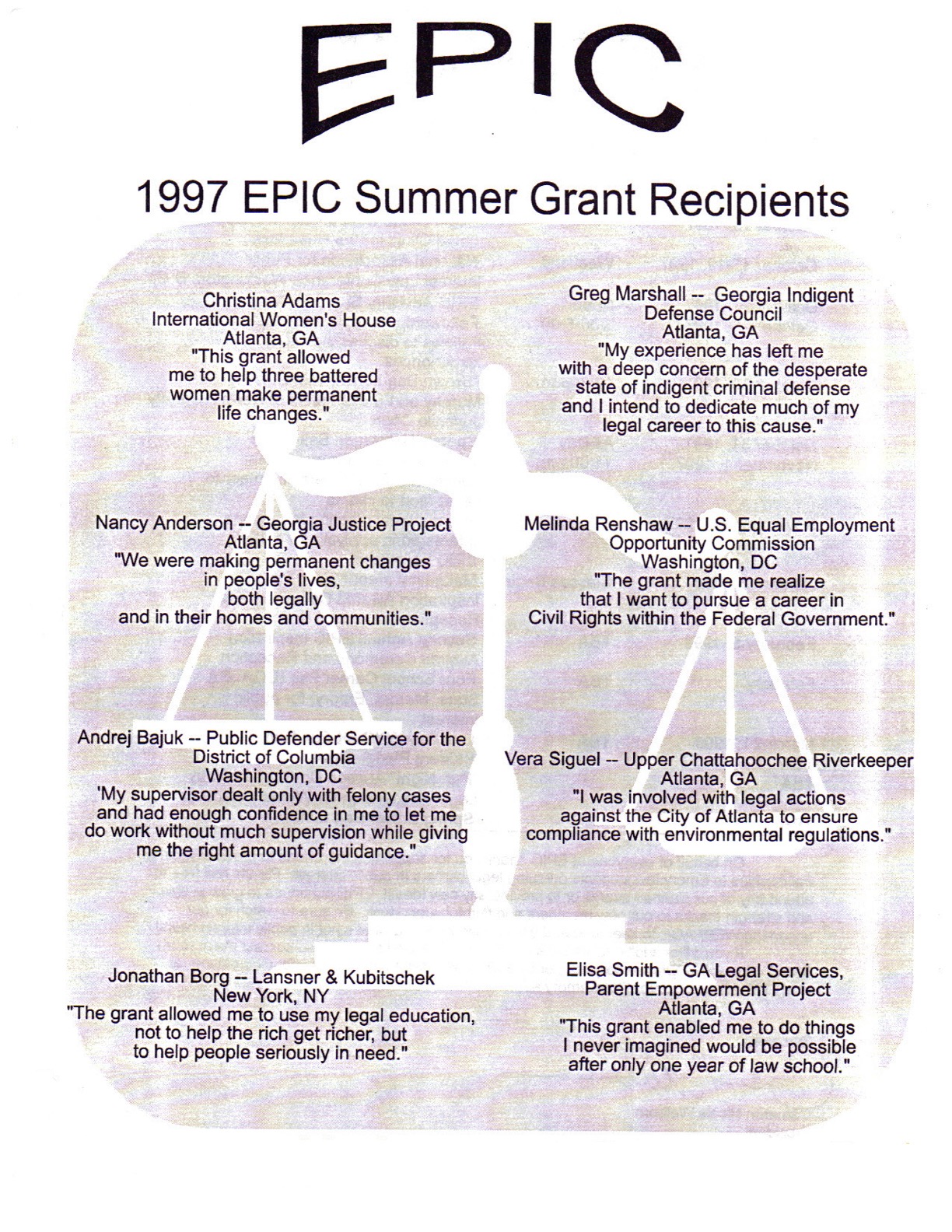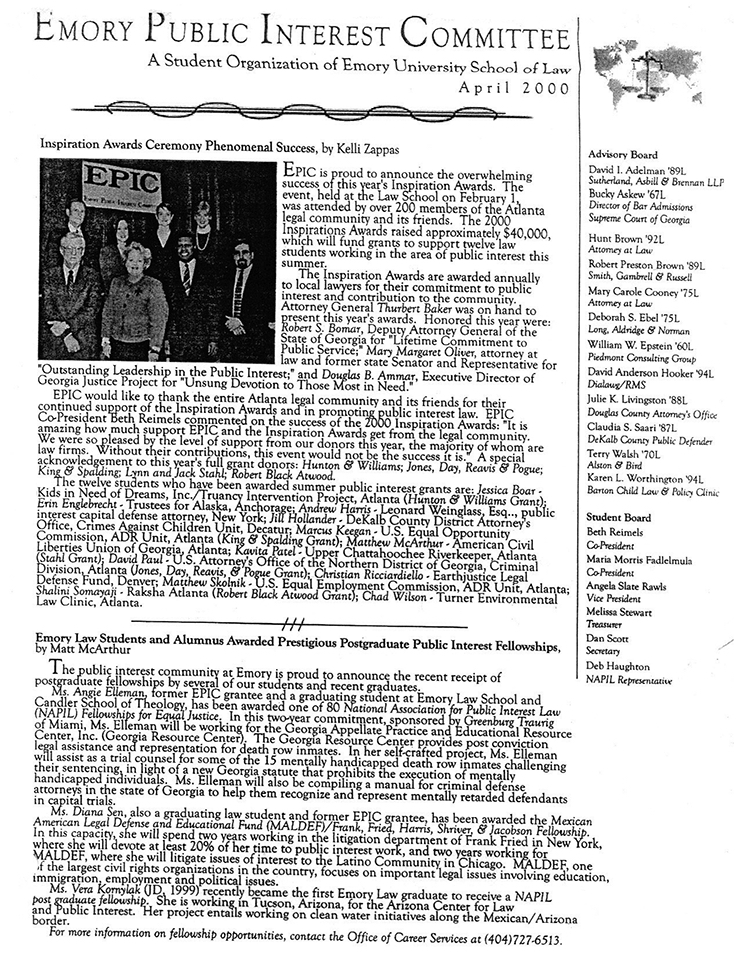Inspiration Awards
Founded by Emory law students in 1988, the Emory Public Interest Committee (EPIC) promotes awareness and increases understanding of public interest law, encourages and assists in the employment of Emory law students in public interest positions, and acknowledges the professional responsibility of lawyers and law students to make legal services more accessible.
“The legal profession is first and foremost a service profession,” says Sam Nunn Professor Emeritus of Law Frank S. Alexander, co-founder and senior advisor of the Center for Community Progress. “The challenge for all of us, and for students individually, is simply to ask who and what are we serving as members of this profession.”

During their annual Inspiration Awards, EPIC awarded Alexander with the Lifetime Commitment to Public Service Award two years ago. He had been serving the public and working at Emory Law for nearly 40 years.
Now, EPIC celebrates the 25th anniversary of its Inspiration Awards — that’s 25 years of funding public interest law fellowships for students, 25 years of effort toward shaping the endeavors of future lawyers, and 25 years of commitment to Emory Law’s mission of experience driving impact.
“The awards ceremony is true to its name — when the awards are given out and the speeches made, any law student or practicing lawyer attending is truly inspired to support the effort,” says Kit Devine 01L, chairperson of the 2000 EPIC Inspiration Awards ceremony. “Many of the students end up in small non-profit or public defender offices where every dollar counts, and EPIC funding makes this possible.”
Devine’s words about the Inspiration Awards ring true almost two decades later for Jason Costa 99C 06L, who was one such law student in 2006. Through EPIC, he learned about the Georgia Innocence Project (GIP), a nonprofit organization dedicated to helping those who are wrongly convicted crimes.
“When I received the EPIC grant, I had an amazing experience with the Georgia Innocence Project. The first client I worked with was Clarence Harrison, who became the organization’s first exoneree, freed after 17 years in prison,” Costa says.
“I liked that I didn’t have to worry about working to support myself while exploring an internship. The grant gives students a chance to try something out that could launch their entire career.” That’s exactly what happened when Costa received an EPIC grant a second time.
“The year following, I worked at the DeKalb County Public Defender’s Office, where I accepted a job after graduation, and I’ve been here ever since,” he says. “Public interest work has been my professional life for almost 15 years and EPIC was instrumental in guiding me on that path.”
In 2019 he was awarded the Unsung Devotion to Those Most in Need Award, which Clarence Harrison presented to him.
This summer, the EPIC grant funded internships for more than 40 students. Just like Costa, Emory Law student Sydney Calas 23L wanted to have a meaningful experience in criminal defense and applied to dedicate 400 hours to the Georgia Innocence Project. Calas had admired the work of the Innocence Project since she was in undergraduate school.
“When I chose the Georgia Innocence Project,” Calas said, “I wanted to have an opportunity to have close mentorship and be part of the type of organization I might want to work for one day.”
At GIP, she had opportunities to see GIP courtroom proceedings on multiple occasions, witnessing an evidentiary habeas hearing for one client and the exoneration of another. “It was incredibly impactful,” she says. “The current district attorney went before the judge to make a statement admitting ‘there are times when seeking justice means righting a wrong.’ The energy inside the courtroom that day is something that I will hold with me for a very long time.”

“I’ve been drawn in by the fact that I got a chance to work with passionate, dedicated individuals who also openly express the nuances of the work.”
Costa says that’s why funding for the EPIC grant matters. “When you work in public interest, you can make an impact in people’s lives all of the time. I’ve had almost 5,000 clients. That’s me and I’m just one person,” he said.
“With all of the students supported over 25 years, you can imagine that EPIC grants make a huge difference. Having that community of people focused on the same thing you are is just invaluable. The experience is priceless.”
Email the Editor


